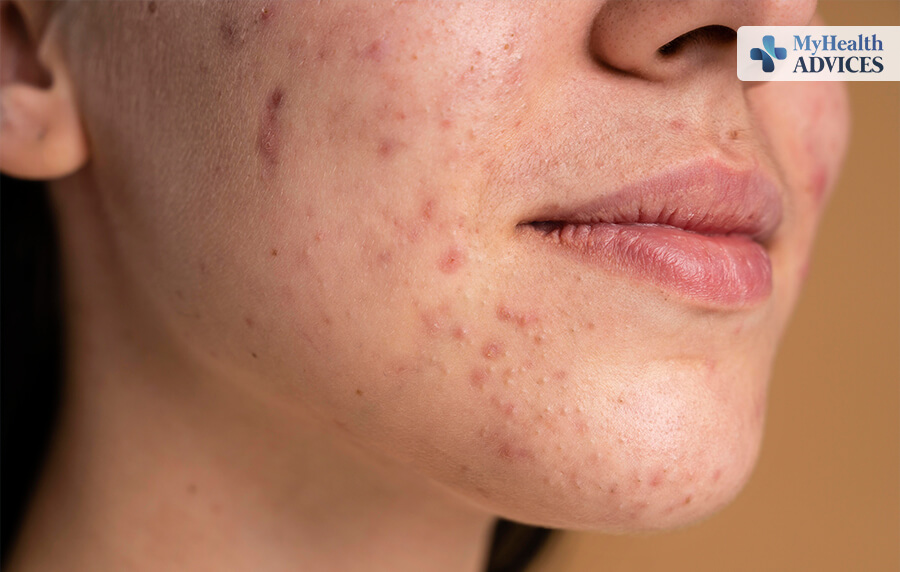What is Acne? Acne is a tiny red bump on the face. Your skin has many tiny holes. When these pores are getting blocked by oil, dirt, and dead skin cells, bacteria start to spread. Then small red bumps are starting to appear. This is acne. Acne is a skin condition that causes pimples.
Acne is a mild skin condition. These are not life-threatening health concerning issues. But often the zits and cyst-like acne are causing pain. Acne is common among teenagers and adults.
Let’s see what are the signs of acne.
Acne Symptoms
The first symptom of acne is little red marks on the skin. Pimples can give your skin a rough and uneven texture. Often big zits cause severe pain. The discolorations, dark patches, spots, and redness is also the symptom of acne breakouts.
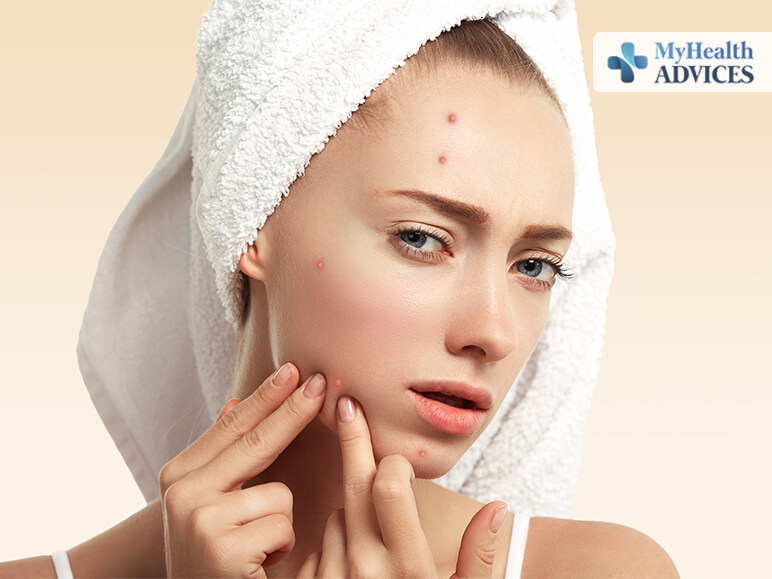
Inflammation
Swelling and inflammation are common symptoms of breakouts. Red swollen bumps are only signs of pimples. Often you can see white pus on the top of the pimple. But sometimes the pimple does not show up on the white head. You only find a red blister-like pimple on your face.
Uneven Skin:
Black and white heads are more like skin color bumps on the skin. Uneven skin textures are also denoting that you have pimples. After pimple breakouts uneven and flaky skins are the common symptoms.
Excess Oil Secretions And Enlargements Of The Pores:
Acne breakouts are often starting with excess oil secretions. Excess oil secretion of the glands often leads to bacteria production. This will cause breakouts of white and blackheads.
Acne Prone Areas
Acne can pop anywhere in your body. But face areas are more prone to acne breakouts. Face and neck areas are acne-prone areas. Apart from these areas, human upper body parts are the more acne-prone areas. Breakouts can happen in the following areas of the body.
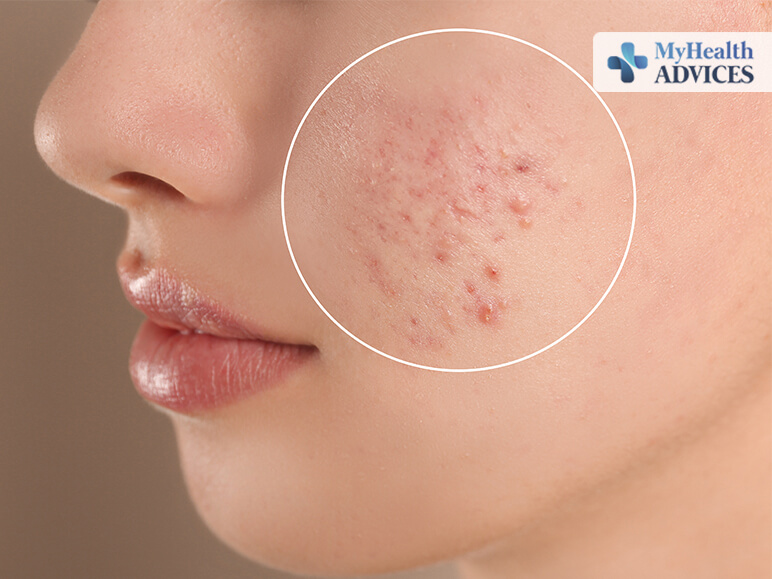
- Face and neck areas.
- Shoulder and back
- Chest area
- Ear
- Nose
Acne Causes
Acne breakouts when your skin pores are blocked with oil, dirt, and dead skin. This clogged situation is leading to bacteria generation and causes pimples. Each skin pore opens to follicles and follicles have sebaceous glands. These glands’ excessive oil secretions often lead to pimple breakouts.
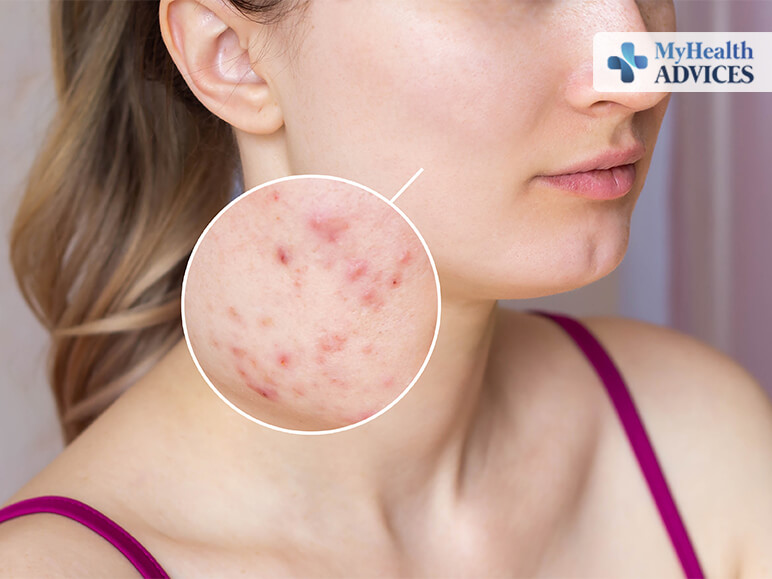
Here are the possible reasons for acne breakouts:
- When your skin follicle is producing too much oil.
- Dead skin cells are accumulating in your skin pores
- Bacteria build up in skin pores
- Hormonal disbalances and excessive oil secretion
- Dirt on the skin and clogged pores with dead skin cells
- Polycystic ovarian syndrome PCOS and endocrine conditions
- Excessive cigarette smoking
- Sleep deprivation and stress
- Allergic reactions due to cosmetic products.
- Certain medications like birth control pills and steroids.
- Family history of acne
Treatment Of Acne
Acne treatments are entirely depending on the severity of the acne breakouts. Teenage acne and adult acne are not the same. The reason is different and breakout styles are also different. For acne-prone skin, mild face wash, and skin care products, use is a must.
Before using any products, always ask your dermatologist first. As the pimple types are different and on the basis of these acnes the treatment procedures are also going to be different.
Here we distinguish between mild to severe cases of acne treatments.
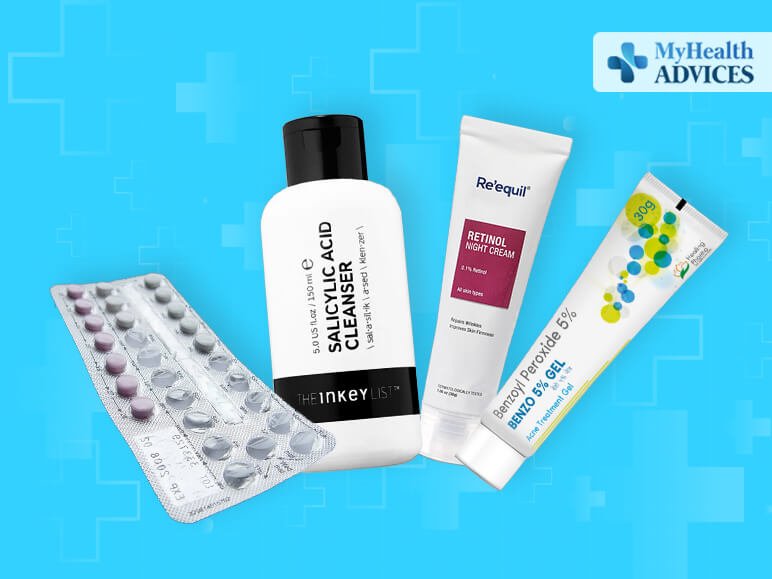
Mild Acne Treatments
For treating mild acne situations medicated creams, cleansers, and spot treatments are enough. Often mild acne symptoms can just be treatable by the use of a mild face wash that has salicylic acids or lactic acids. These acids are killing the bacteria on the skin’s surface and shred the dry skin.
Here are some of the over-the-counter medications.
Benzoyl peroxide: For drying out the existing pimples by killing acne-causing bacteria.
Salicylic Acid Face Wash: It will exfoliate your skin and prevent clogged pores.
Moderate Acne Treatments
Even after applying the mild acne treatments if you do not see any differences then here are the moderate treatments procedures which you can adopt.
Doctors prescribed benzoyl peroxide: For killing the bacteria.
Medications: antibiotics and clindamycin or retinol ointments.
Birth Control Pill: For controlling hormonal acne often doctors are prescribed birth control pills.
Severe Acne Treatments
Severe acne is treated by professional dermatologists. Here are some of the medications often prescribed by the dermatologist.
Antibiotics: For killing rash and red face bumps.
Benzoyl Peroxide: It will dry out the existing pimples and kill the bacteria.
Topical Retinol: Vitamin A can treat black, white, and cyst acne.
Acne Prevention
In the acne preventive steps, a good healthy diet and a hydrated body are the two main aspects. Apart from these two, you can follow the following tips to avoid acne situations.
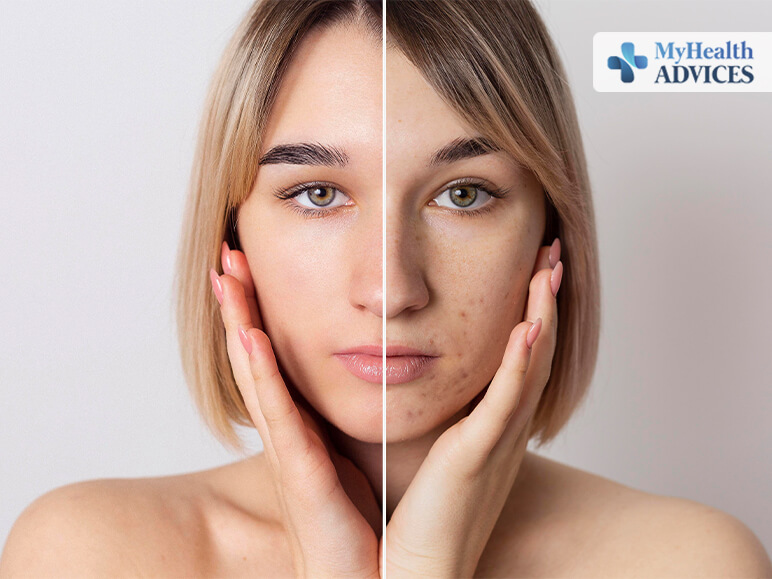
- Keep your skin clean by washing the areas at least two times a day.
- Follow a proper acne skin care routine.
- Wash your hair and keep your hair dirt and dandruff free.
- Do not squeeze the pimple.
- Use sunscreen when you are going under the sun.
- Apply the tropical acne-treatment ointments.
- Consult a professional dermatologist.
- Test your hemoglobin level, blood pressure, and sugar.
- Identify what type of acne you are having.
- Track your period cycle and understand the exact time of breakouts.
- Adult acne or hormonal acne requires medical attention.
The above tips are for acne prevention. If you do not see any differences after applying these tips then your next steps are to seek help from the dermatologist.
Bottomline:
Acne is not a serious health concern. But when acne breaks out the pain and stress are starting to be the all-time companion of the person. Almost 60% of human beings are suffering from mild to moderate acne during their teenage years. But for adult acne things are different. Adult acne is often linked with hormonal disbalances. So to recover from these acne issues you need immediate medical attention.

